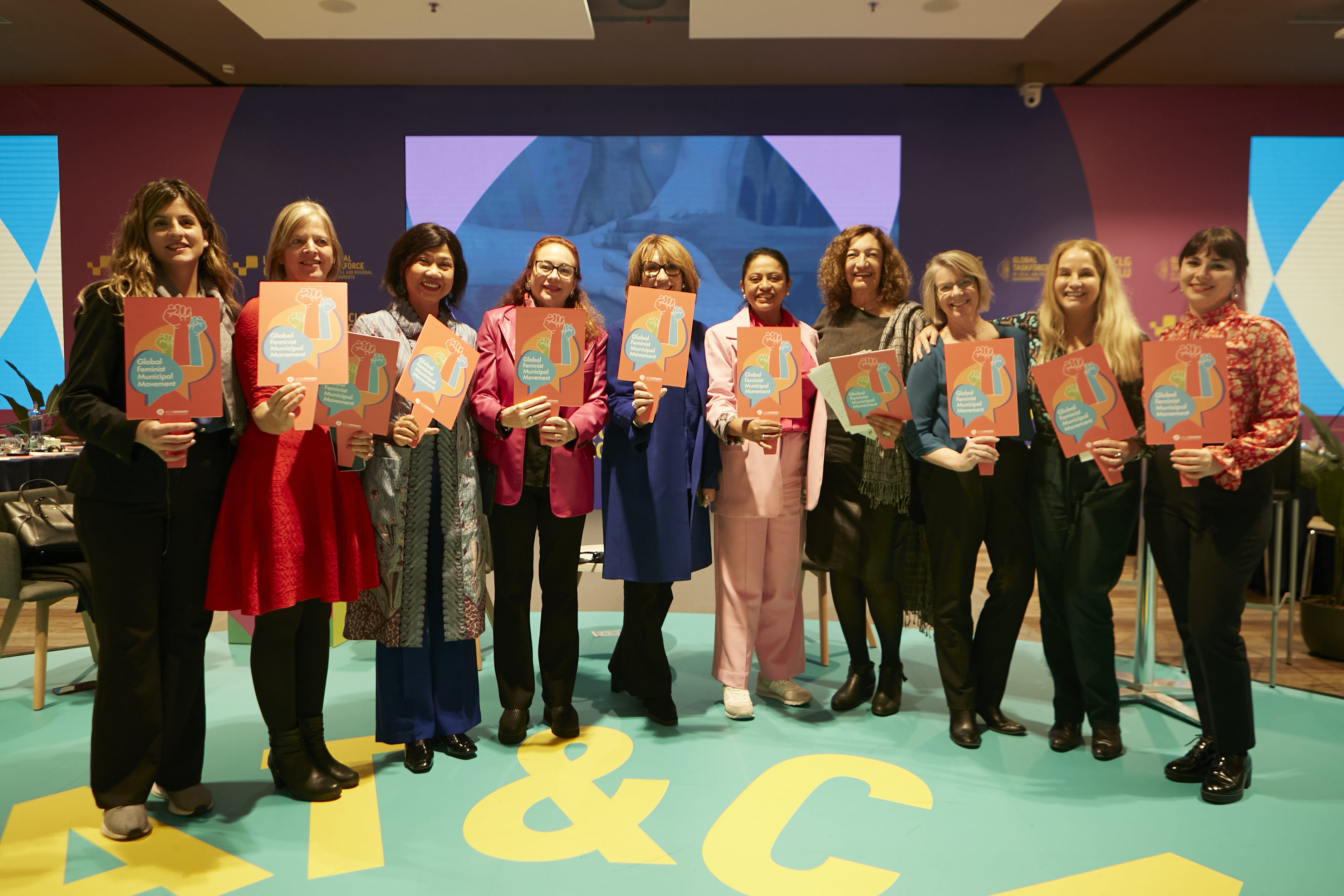One of the liveliest and most moving sessions of the Retreat was the kick-off of the Women’s Facility at UCLG. “We have been pushing feminist visions and embracing them, going from rhetoric to practice. […] We have a narrative already and know that we need to include these topics, but we need to put them into practice. Suppose there is something that UCLG knows how to do; it is putting different actors together locally,” said Ana Falú, UCLG UBUNTU Advisor and Professor Emeritus of the National University of Córdoba.
She suggested local reviews of SDG 5 on gender equality, a crosscutting goal prerequisite for all other SDGs. She wished for at least 100 cities and UCLG members to discuss gender policies in their territories. “We are not against men, but against the old hierarchies and power distribution. We need to question everyday actions and share answers to questions like why, in Latin America, where the feminist movement is so strong, only 16 per cent of local governments are led by women.”
María Fernanda Espinosa, UCLG UBUNTU Advisor and Executive Director of GWL Voices for Change and Inclusion, affirmed that women should use their powers to improve multilevel governance. “We need a strategy to fight anti-rights narratives and use relatable, transformative tools.” On top of the triple crisis of inequalities, conflict, and climate, she blamed the crisis of imagination for many of today’s problems. “But in the local sphere, we can be imaginative to achieve this transformation.”
Paola Pabón, Prefect of Pichincha, explained that localising efforts to land benefits in the territory is essential. “We need to ensure that feminist issues are included in local budgets and place women and feminist policies at the centre of municipal governments. As a mayor, it is essential that women can count on us and that we offer services devoted to them. We must support them with budget and public policies.” She also said that those doing feminist policies are usually female mayors, but “it cannot only be done by women.”
In the following exercise, participants received different avatar personalities that faced a genderrelated challenge and helped them to overcome it. This inspired lively discussion and many ideas for and from the male and female perspective – and any perspective that does not relate to the traditional binary gender system. Participants also expressed the importance of mutual learning and sharing what works and doesn’t.
In the panel discussion, Bernadia Irawati Tjandradewi, Secretary General, UCLGASPAC, shared that in the Asia-Pacific region, the share of women in local governments is currently 15.38 per cent. She explained that some progress has been made compared to previous percentages, but it still falls short. “We have been discussing quote systems, but they are insufficient,” she said. Instead, she recommends a combination of advocacy, extensive campaigns, capacity building, peer-to-peer learning and mentoring for female elected leaders.
Clare Hart, Vice-President of Montpellier Méditerranée Métropole, suggested looking at four dimensions related to gender equality in the UCLG-Women Facility: economic participation, education, health and survival, and political empowerment. “We need to place gender at every single level in everything we do, and we need a measuring tool, which seems to me to be the most important thing,” she said, quoting examples from Barcelona and Bogotá that managed to bring down gender violence through effective public policies and education plans for boys and men with a “calm line” phone number for working through violent surges.
Among much applause, Laura Neuman, Senior Advisor at The Carter Center, stated that municipal bodies worldwide only employ 36 per cent of women, typically in lower positions and working on gender and social protection rather than defence, finance, or the economy. She affirmed that women need more capacitybuilding, skills, family support, information, respect, and safety. “I want to emphasise peer support, mentoring and allyship. With these three ingredients, we will go a long way to make the feminist municipal movement successful.”
Emilia Saiz, UCLG Secretary General, closed the session by underlining that all three pilot UCLG Facilities are closely interconnected. For the Women’s Facility, she suggested thinking about creative and evidence-based research, innovative services and local-to-local dialogues, training and establishing partnerships, and monitoring, for example, through voluntary subnational reviews of gender policies. “When will we have a Secretary General of the UN who is a woman?” This question from the audience summed up the spirit of the session.


 This publication was produced with the financial support of the European Union. Its contents are the sole responsibility of UCLG and do not necessarily reflect the views of the European Union.
This publication was produced with the financial support of the European Union. Its contents are the sole responsibility of UCLG and do not necessarily reflect the views of the European Union.